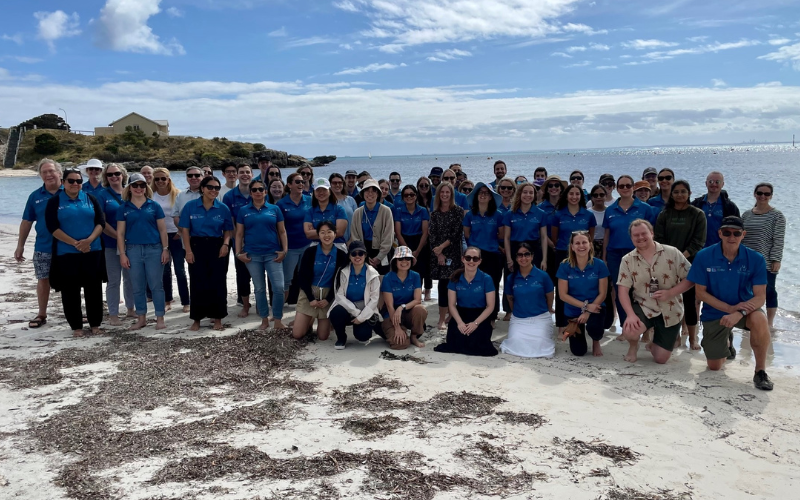Search
Showing results for "Au"

News & Events
Wal-yan Scientific Retreat: Fostering Collaborative ExcellenceThe Wal-yan Respiratory Research Centre's dedicated team members, along with special guests, embarked on a journey to Wadjemup (Rottnest Island) on 9 and 10 November.
Research
FluBubs: Safety and immunogenicity of Early Quadrivalent Influenza VaccineChristopher Tobias Blyth Kollmann MBBS (Hons) DCH FRACP FRCPA PhD PhD, M.D., SFUW Centre Head, Wesfarmers Centre of Vaccines and Infectious Diseases;
Research
Time investment and child developmentThis project aims to explore how Australian children spend their time over an extended and important period of their lives (from birth to 16/17 years old) and how such time allocation contributes to their development outcomes.
Research
The Impact of a Multifaceted Tertiary Pediatric Hospital's Antimicrobial Stewardship ServiceAntimicrobials are the most commonly prescribed drug class in children. Overuse through inappropriate prescribing is a key driver of antimicrobial resistance and is recognized as one of the top 10 threats to global health by the World Health Organization.
Research
Invasive fungal infections in children with acute lymphoblastic leukaemia: Results from four Australian centres, 2003-2013Invasive fungal infections are more common in children with high-risk acute lymphoblastic leukaemia and in relapsed disease
Research
The incidence, prevalence and clinical features of MECP2 duplication syndrome in Australian childrenMECP2 duplication syndrome is a rare but important diagnosis in children because of the burden of respiratory illness and recurrence risk

News & Events
Major grants fuel child health researchSix researchers from The Kids Research Institute Australia have been awarded $8.9 million in prestigious Investigator Grants from the National Health and Medical Research Council.

News & Events
Celebrating Women in Science: A Conversation with Dr. Jackie Davis - Co-Director, ORIGINSIn honour of International Day of Women and Girls in Science, we celebrate women in STEM and their incredible contributions to the field, aiming to inspire the next generation of female scientists.

News & Events
Prime Minister’s Prize for pioneering WA anaesthetistCongratulations to trailblazing Western Australian paediatric anaesthetist and researcher Professor Britta Regli-von Ungern-Sternberg, who has been awarded a prestigious Prime Minister’s Prize for Science for globally influential research that has made surgery and recovery safer for babies and children.

News & Events
Study finds link between family dog ownership and girls’ physical activityResearchers have found a clear link between the acquisition or loss of a family dog and the level of physical activity undertaken by children in the family, with the impact most noticeable in girls.
